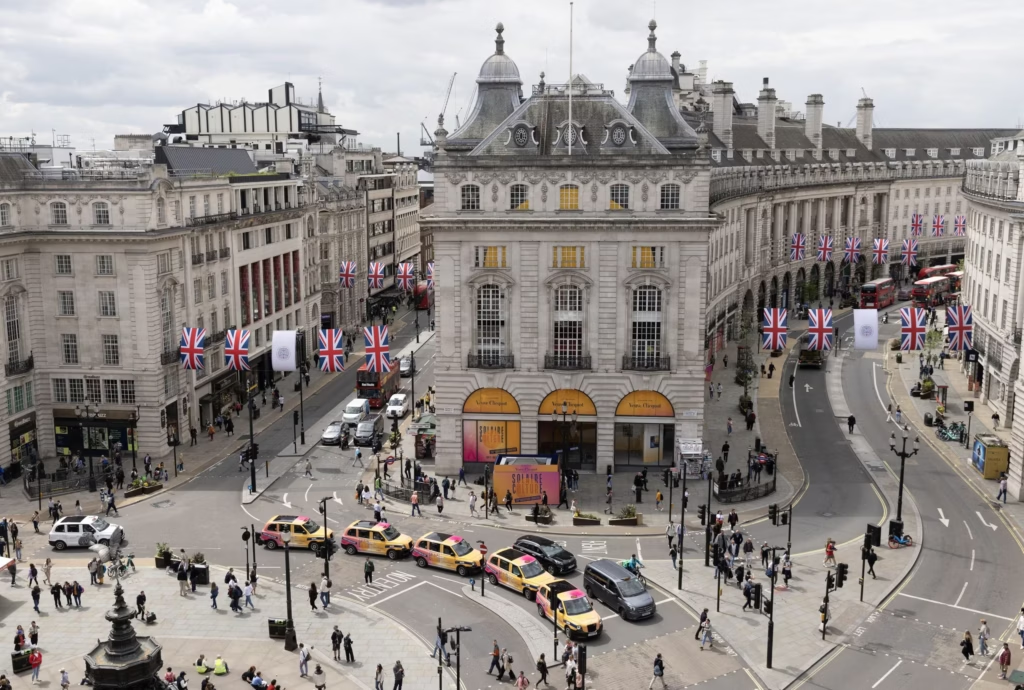An Event Planner’s Guide to Egypt
Technology Meets Creativity at
B. Inspired
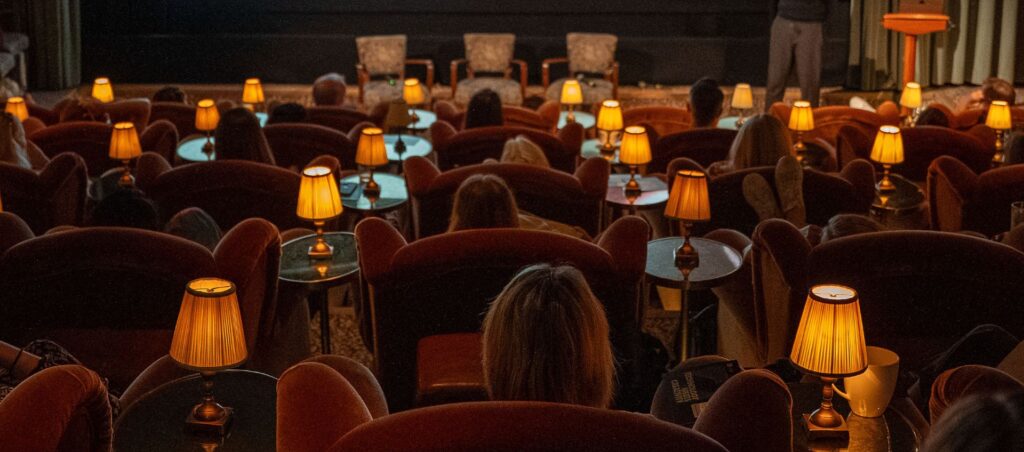
The B.Inspired series is a space to respond to the biggest questions our clients are asking. Corporate event, marketing and communications leaders gathered at Soho House Dean Street’s screening room to explore how creativity and emerging technology can transform live experiences and elevate human connection.
Martin Walton, Creative Director, framed the session with a nod to Arthur C. Clarke’s quote that “any sufficiently advanced technology is indistinguishable from magic.” For events, magic means wow factor. And at Broadsword, magic is created when technology is applied in service of creativity – not the other way around. From immersive sets to levitating rooms to Blade Runner-style blimps, Martin showcased how creativity-led innovation is driving industry-defining experiences.
Our keynote – Rethinking AI and Its Impact on Business & Humanity – was delivered by Dr. Daniel Hulme, Chief AI Officer at WPP and CEO at Satalia.
The central idea is that AI is not just a tool to automate or enhance productivity – it’s a means to rethink how we make decisions, understand people, and build more responsive, intelligent experiences. At its core, AI has six applications that are already transforming business including the events industry:


But is the growth of AI boom or doom?
Many organisations are using AI to try to extract more insights from data. But Daniel argues: “You don’t have an insight problem – you have a decision problem” as humans are flawed decision makers. Start from the decision and work backward. Encouraging our audience to think differently about AI, he explained that the best AI isn’t automation, but the AI that adapts, learns, and improves its decision making over time. Creativity and decision-making benefit most when AI helps navigate complexity, not just speed up output.
In development now are proprietary “brand brains” that generate content perfectly aligned the your tone, values, and guidelines of your brand, and “audience brains” that simulate audience perception to tailor content emotionally and behaviourally – not just demographically – to drive marketing that resonates.
Currently, around 33% of what these tools generate may be wrong or unhelpful unless guided well but it is forecasted that AI will develop at a rate that it will develop from a ‘graduate’ to a ‘professor’ within the next five years. Along with ethical implications and micro changes expected from AI, Daniel explored the potential macro-level implications that AI may trigger in the form of six singularities including political disruption due to misinformation and environmental risk due to overconsumption, or alternatively AI aided climate solutions.


Panel: Designing for immersion and purpose
Following Daniel’s keynote he was joined back on stage by Martin Walton, Creative Director and Charlotte Sheffield, Broadsword’s Creative Producer to tackle the questions submitted by our audience on creative uses of technology and ways to enhance the delegate experience.
During the panel, Broadsword’s team emphasised that event agendas must respect the value of attendees’ time. People don’t want to just listen; they want to contribute. This is why the use of event technology and immersion must be purpose-driven, increasing relevance and engagement for attendees – inviting participation and capturing the opportunities to connect with an audience that are being missed during an event.
The use of innovative technology like AR works best when integrated with intention, and Charlotte emphasised that even more traditional tools like QR codes, data visualisation, and LED screens can transform an event experience when used as a tool for creativity.
Technology and the future of event experiences
One theme that’s come through clearly is that technology shouldn’t replace creativity – it should amplify it. And when it’s used thoughtfully, it has the power to make experiences not only smarter, but actually more human.
Our audience was discouraged from chasing the AI hype, but rather focusing on how it can solve real problems and elevate real experiences.While AI enforces bias and hyper personalisation, great events have the opportunity to be memorable through the collective experience – connecting us to people, moments, and stories.
AI will soon be your collaborator, your client, and your competition. Technology is your toolkit, but the story still comes first for inherently emotive events.
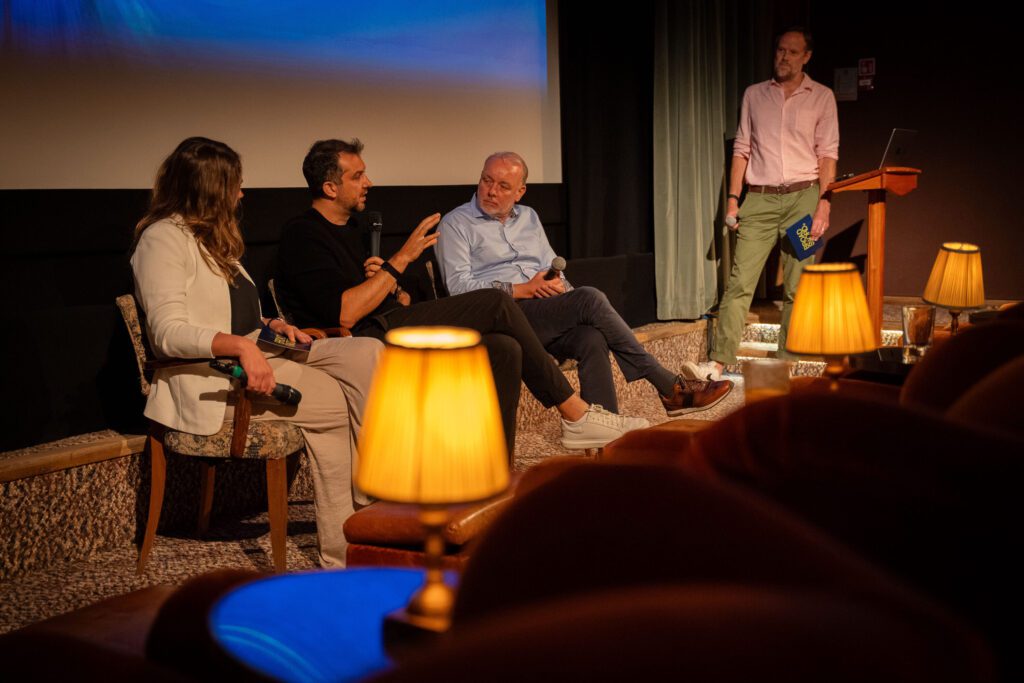
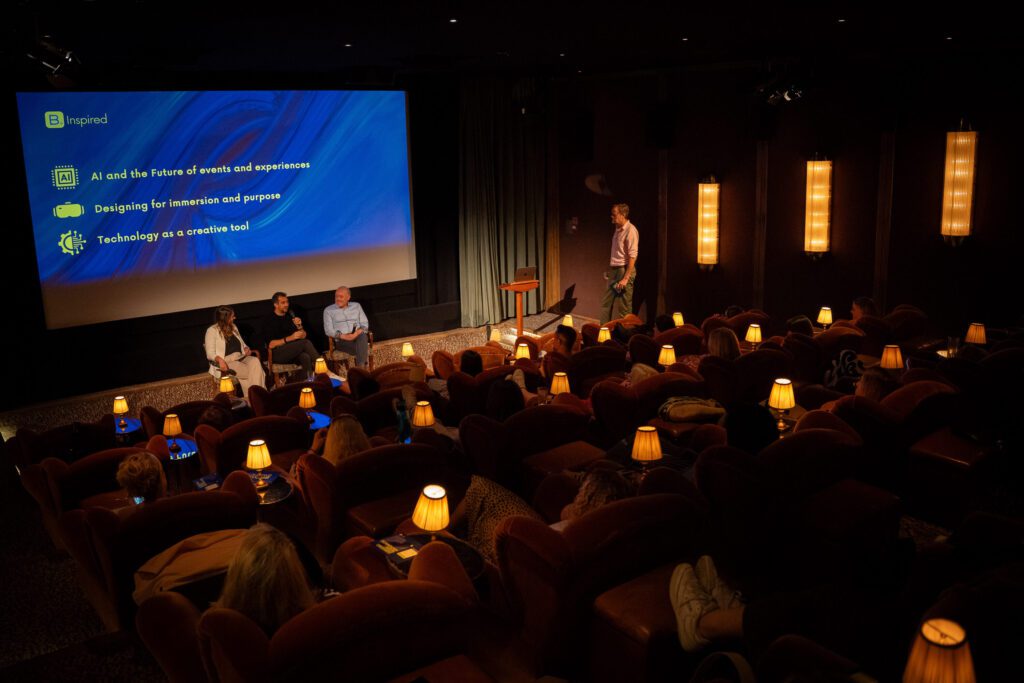
Related insights
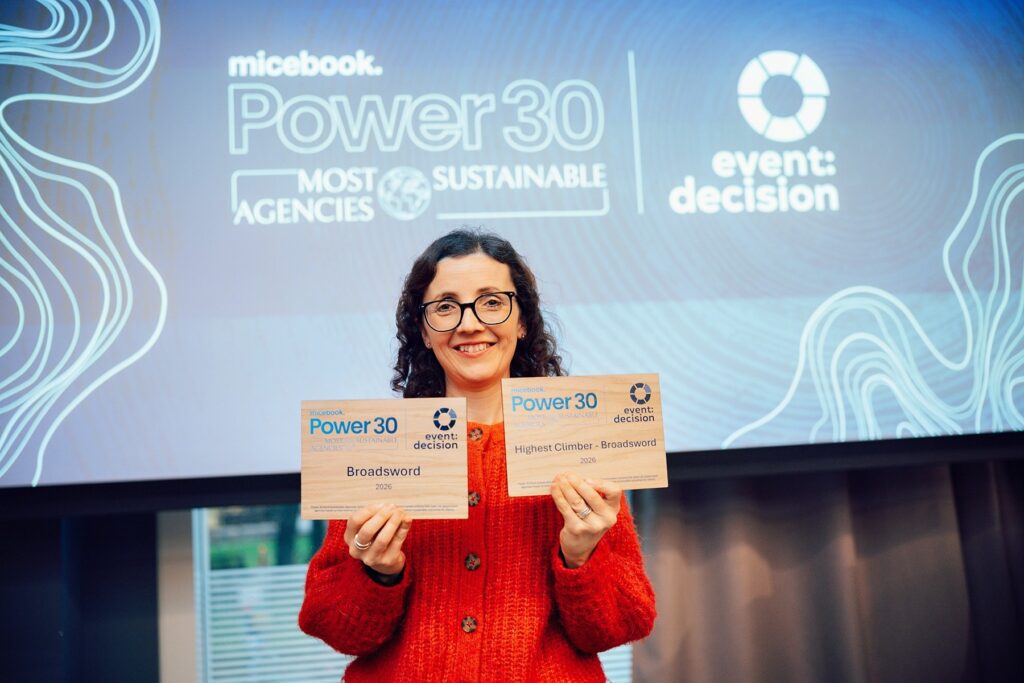
Broadsword awarded highest climbing sustainable agency

